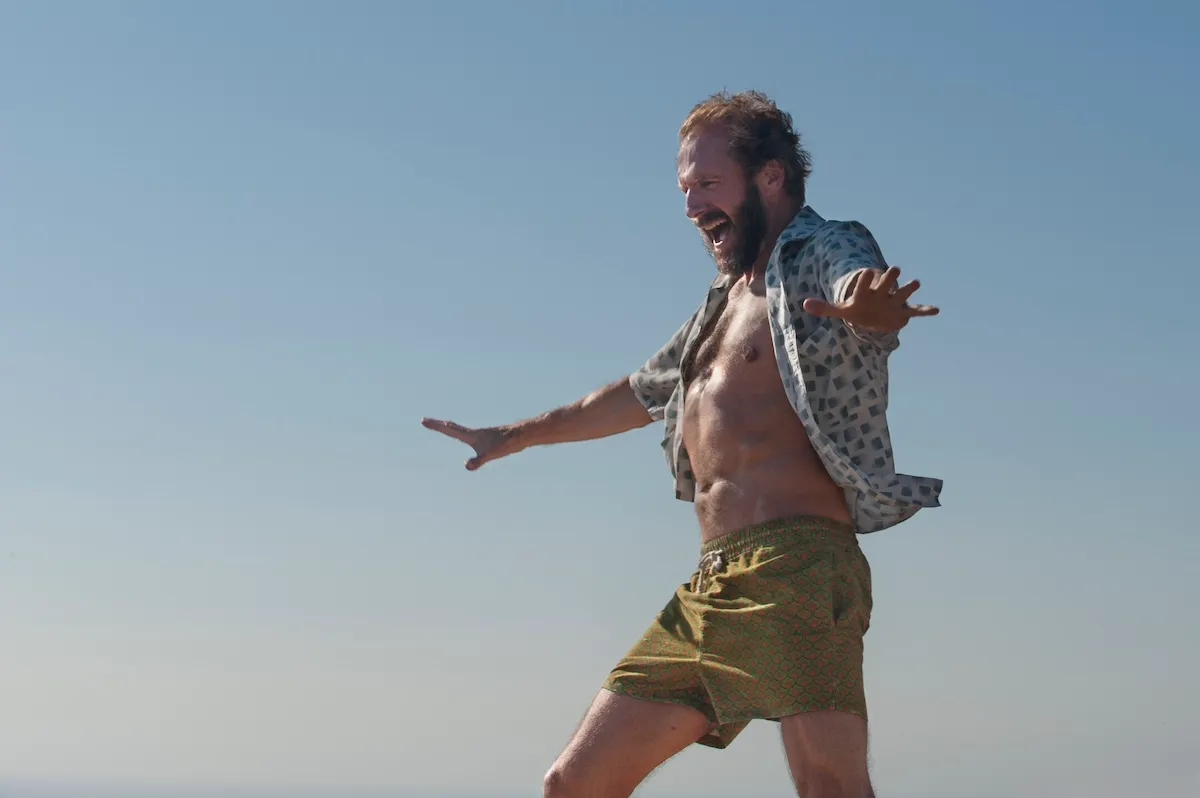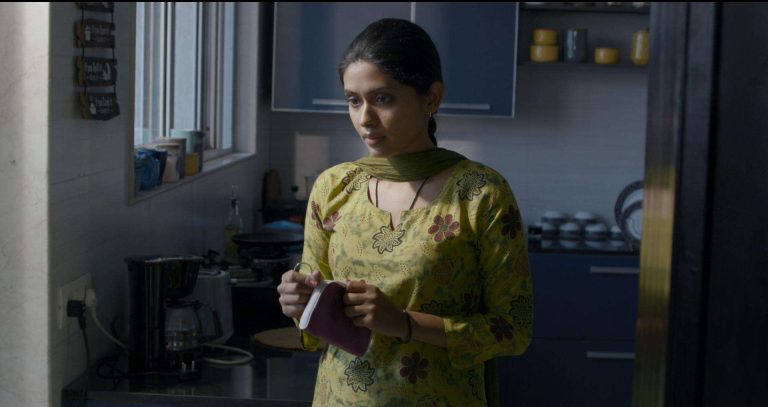Four people in a villa in the south of Italy, spending their summer harbouring a complex relationship of desire and jealousy, already seems like a delicious story to put on screen. Italian filmmaker Luca Guadagnino’s A Bigger Splash (2015) offers us exactly that. With lush visuals filled with rock and roll music and naked bodies floating in the Mediterranean, “A Bigger Splash” becomes a seductive take on the psychosexual exploration of desire and loss.
It tells the story of a renowned rock star, Marianne (Tilda Swinton), who temporarily becomes mute due to an operation on her vocal cords. She, along with her partner, Paul (Matthias Schoenaerts), a documentary filmmaker, is spending a quiet life on the island of Pantelleria. Their life seems to go smoothly until one day, Harry (Ralph Fiennes), a record producer and Marianne’s ex, arrives to spend his vacation in the same place with his twenty-something daughter, Penelope (Dakota Johnson).
Though there is mutual courtesy among the four, an underlying tension becomes apparent from the arrival of Harry and Penelope. Guadagnino beautifully presents this visually through a POV shot very early in the film. In this scene, Paul looks at Harry somewhat dispassionately upon his arrival with his glasses on. Taken from Paul’s point of view, the shot captures Harry with all the colours washed off—a playful technique that is soon nullified by Tilda Swinton’s Marianne when she takes his glasses off, bringing the colours back to normalcy. While Paul sees Harry as an impending danger to their relationship, Marianne tries to maintain a balance.
And this is only the beginning. The visual splendour of the film is magnificently warm and lascivious, filled with erotic prowess. Cinematographer Yorick Le Saux often captures vast landscapes, seamlessly drawing us into this seductive world. Additionally, his use of natural lighting adds texture to the film’s eroticism. The editing is also well-crafted, frequently shifting timelines between present and past.

In the past timeline, we learn about Marianne’s once-wild lifestyle, influenced by Harry, and how Paul first met her. While that is showcased visually, Paul’s past struggles with alcoholism and his suicide attempt one year prior are revealed through dialogue. Neither Paul nor Marianne wants to talk about this incident, yet Harry, being flamboyant and a motor mouth, can’t resist bringing it up repeatedly.
Harry is a charming yet narcissistic person, who forces his opinions onto others. While Paul is distraught by Harry’s presence, Marianne can’t resist him, given their nostalgic history together. Out of jealousy toward Paul’s tenderness and caring attitude toward Marianne, Harry attempts to reclaim her. This ultimately leads to a brutal finale that completely changes the lives of all four characters.
Ralph Fiennes extracts everything from the juicy material and creates a monster of a performance as Harry. He brings a toxic yet seductive charm that disrupts the power dynamics, even when the opposite person is fully aware of it. His impromptu dance to the Rolling Stones’ ‘Emotional Rescue’ is a highlight of the film, capturing his hedonistic ecstasy, while his naked dive into the swimming pool in front of everyone serves as a metaphor for his arrogance and possessiveness.
Tilda Swinton delivers literally a muted performance as Marianne, with little to no words, in contrast to Harry’s non-stop chatter. Interestingly, it was Swinton’s own idea to make Marianne mute to further contrast Fiennes’ character. This silence naturally shifts the power dynamics toward Harry, allowing him to manipulate Marianne into potentially breaking up with Paul. Swinton has a great acting vocabulary, and she creates her character as someone both vulnerable and irresistibly seductive, drawing in everyone around her.

I think she captures the inner struggles of celebrity life quite harrowingly, showing how one must put on a mask of charm for the public while privately dealing with an emotional void. People like Harry understand this well and exploit it for their own gain. Guadagnino’s brilliant use of the Stones’ song ‘Emotional Rescue’ creates a stark contrast between the lyrics and the situation. People like Harry claim to come for emotional rescue, but they are actually there for emotional manipulation.
Another important character, Paul, is just as significant. He harbours a dark past, and as the movie’s ending suggests, he will be haunted by his present actions as well. Through Marianne, he finds solace in this chaotic situation. It is not Paul who comes to Marianne’s emotional rescue but the other way around. While he is not a blatant manipulator like Harry, he certainly has flaws in how he treats his partner. Matthias Schoenaerts plays this part quite well, yet in front of powerhouses like Fiennes and Swinton, his performance feels somewhat subdued.
The same applies to Dakota Johnson. She plays Harry’s sensual yet indifferent daughter, Penelope, who is mostly unaffected by her father’s brash and flamboyant personality and Marianne’s rock star image. The only thing that interests her is Paul. An interesting sexual tension develops between the two characters. Yet, just as it starts to get interesting, Guadagnino cuts it off completely. While a late revelation about her character adds some last-minute drama, it comes too late to be truly impactful.
Amidst all its visual richness, “A Bigger Splash” ultimately ends on a frustrating note. The third act feels completely disconnected from the events leading up to it. It almost feels like a completely different movie after the inciting incident at the climax of the second act, and even the finale feels rushed and unconvincing. Despite its flaws, “A Bigger Splash” has its moments to shine and remains an entertaining psychological drama and becomes a strong precursor to Guadagnino’s more prominent films, like “Call Me by Your Name” and “Queer.”



![Welcome, Or No Trespassing [1964] Review – A Marvelous Soviet Camp Comedy](https://79468c92.delivery.rocketcdn.me/wp-content/uploads/2021/03/Welcome-Or-No-Trespassing-1964-768x432.jpg)

![Simulation (Tamaroz) [2017]: ‘TIFF’ Review](https://79468c92.delivery.rocketcdn.me/wp-content/uploads/2017/09/simulation_03_highonfilms-768x384.jpg)
![Imperium [2016] – An Effective Thriller about the Multifaceted Extremism](https://79468c92.delivery.rocketcdn.me/wp-content/uploads/2016/08/Imperium-2-768x511.jpg)